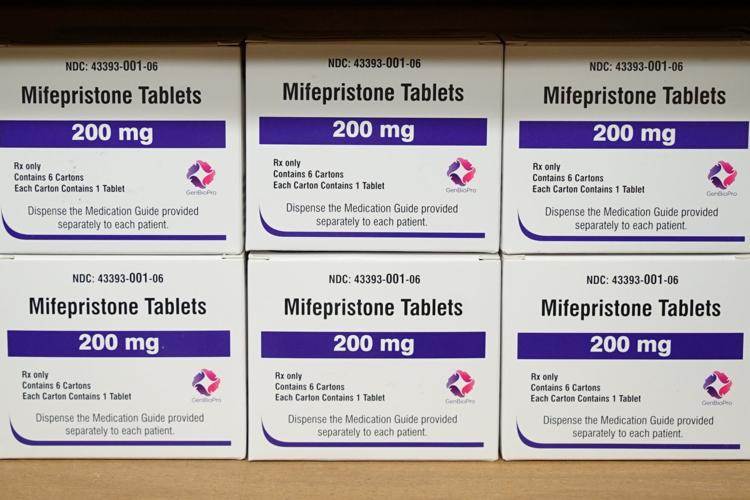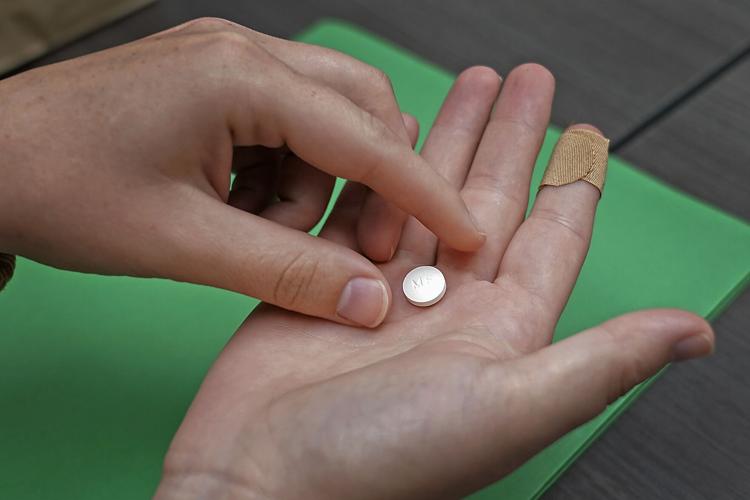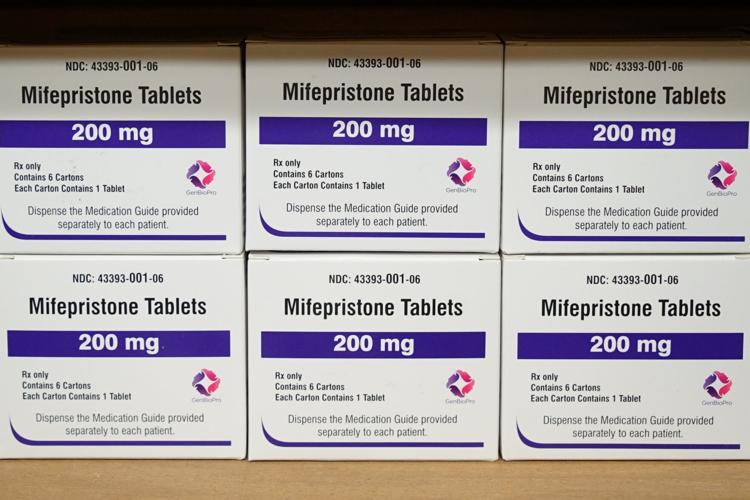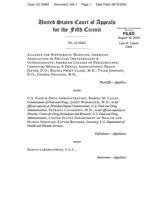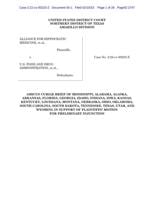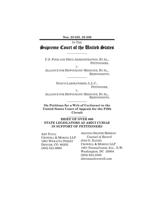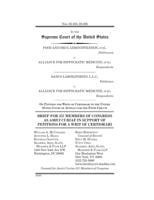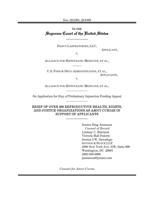WASHINGTON — Once again, the U.S. Supreme Court is going to weigh in on abortions — this time on access to the two-pill mifepristone regimen, for medical abortions — and once again, Louisiana will play a supporting role.
The high court agreed Wednesday to review a 5th U.S. Circuit Court of Appeals ruling that found the federal Food & Drug Administration erred in 2016 and 2021 when it decided the drugs no longer had to be administered during personal visits to a doctor and could be obtained through the mail.
Just like 18 months ago, when a 6-3 Supreme Court overturned Roe v. Wade in another case that came through the New Orleans-based 5th Circuit, Louisiana law could be directly impacted. Louisiana officials on both sides of the issue are submitting arguments for the high court to consider.
Mifeprex, which is sold as mifepristone, is used in more than half the abortions in the U.S., according to the Guttmacher Institute, a reproductive rights research and advocacy group. Nearly 6 million women have used the drug since 2000 when the FDA approved it. The drug also helps manage miscarriages.
Since Roe was overturned, more women are turning to medical abortions. Conservative Christian groups and doctors have argued that the drugs should be banned because the FDA did not properly approve their use 23 years ago. They are represented by a firm that specializes in conservative Christian causes, a firm that employed House Speaker Mike Johnson, R-Benton, for nearly a decade.
In April, U.S. District Judge Matthew Kacsmaryk, a former conservative Christian litigator whom Donald Trump nominated to the federal bench in Amarillo, Texas, ordered mifepristone removed from the market.
The 5th Circuit in New Orleans lifted Kacsmaryk’s ban. But a three-judge panel — all nominated by GOP presidents — in August reversed the FDA changes that made the drug more available. The 5th Circuit hears appeals of cases from lower courts in Louisiana, Mississippi and Texas.
This complicated administrative law appeal concerns the regulation of mifepristone,
Louisiana is one of 14 states that have banned use of the pregnancy-ending drugs. But enforcing distribution through the mail is difficult. Nobody in Louisiana has been charged with sending or receiving the drugs. Another 15 states have laws that limit how the drug is prescribed.
Taken first, mifepristone dilates the cervix and blocks the hormone needed to sustain a pregnancy. Misoprostol is then taken up to 48 hours later; it causes contractions that expel the dead fetus and tissues.
Often the pills cause nausea and diarrhea, occasionally requiring medical treatment. The FDA reported 32 deaths from the drugs over a two-decade period.
But during most of that time, the drugs were administered under a doctor’s supervision, said Benjamin Clapper, director of Louisiana Right to Life, the New Orleans-based group that has been influential in passing anti-abortion measures in the state. The FDA's changes, which allow women to directly buy and use the drugs without physician oversight, make the process more dangerous, Clapper said.
“It’s like the wild, wild West,” Clapper said.
Attorney General Jeff Landry, Louisiana’s incoming governor, did not respond to queries about whether the state would submit briefs arguing against the use of abortion pills. But he did sign a brief saying as much when the case was in Amarillo.
Attorney General Jeff Landry signed onto brief submitted to federal trial court in Amarillo, Texas
Incoming Attorney General Liz Murrill also did not respond to queries.
As the Supreme Court just announced it would consider the matter, respondents — the Alliance for Hippocratic Medicine and Christian-based groups and physicians — haven’t made their filings yet. Petitioners — Biden administration agencies — already have begun filing their arguments.
State legislators tell U.S. Supreme Court they support easier access to abortion pills
State Reps. Mandie Landry and Jason Hughes, both Democrats from New Orleans, have signed onto a filing by 600 state legislators from around the country that argues for keeping mail order access. U.S. Rep. Troy Carter, the only Democrat in Louisiana's congressional delegation, joined a brief filed by 257 members of Congress.
Brief submitted to the U.S. Supreme Court in favor of keeping easy access to abortion pills
Lift Louisiana, a New Orleans-based group advocating for reproductive rights, filed briefs supporting the FDA access rules while the case was before the 5th Circuit. The group likely will join a brief being put together by the National Women’s Law Center in Washington, said Michelle Erenberg, Lift Louisiana’s executive director.
Though the pills are already illegal in Louisiana, if the Supreme Court upholds the 5th Circuit, they'll be much harder to get, Erenberg said. That means women from states that have banned abortions will have to travel long distances to states that do allow them, she said — and they'll have to do so during the first seven weeks of pregnancy required by the 5th Circuit rather than before 10 weeks that the FDA allowed.
“That leaves people with few, if any, options," Erenberg said. "They would have to schedule a surgical abortion."
The Supreme Court likely won’t issue a decision until June, which again will put abortion in the middle of the 2024 campaigns.

